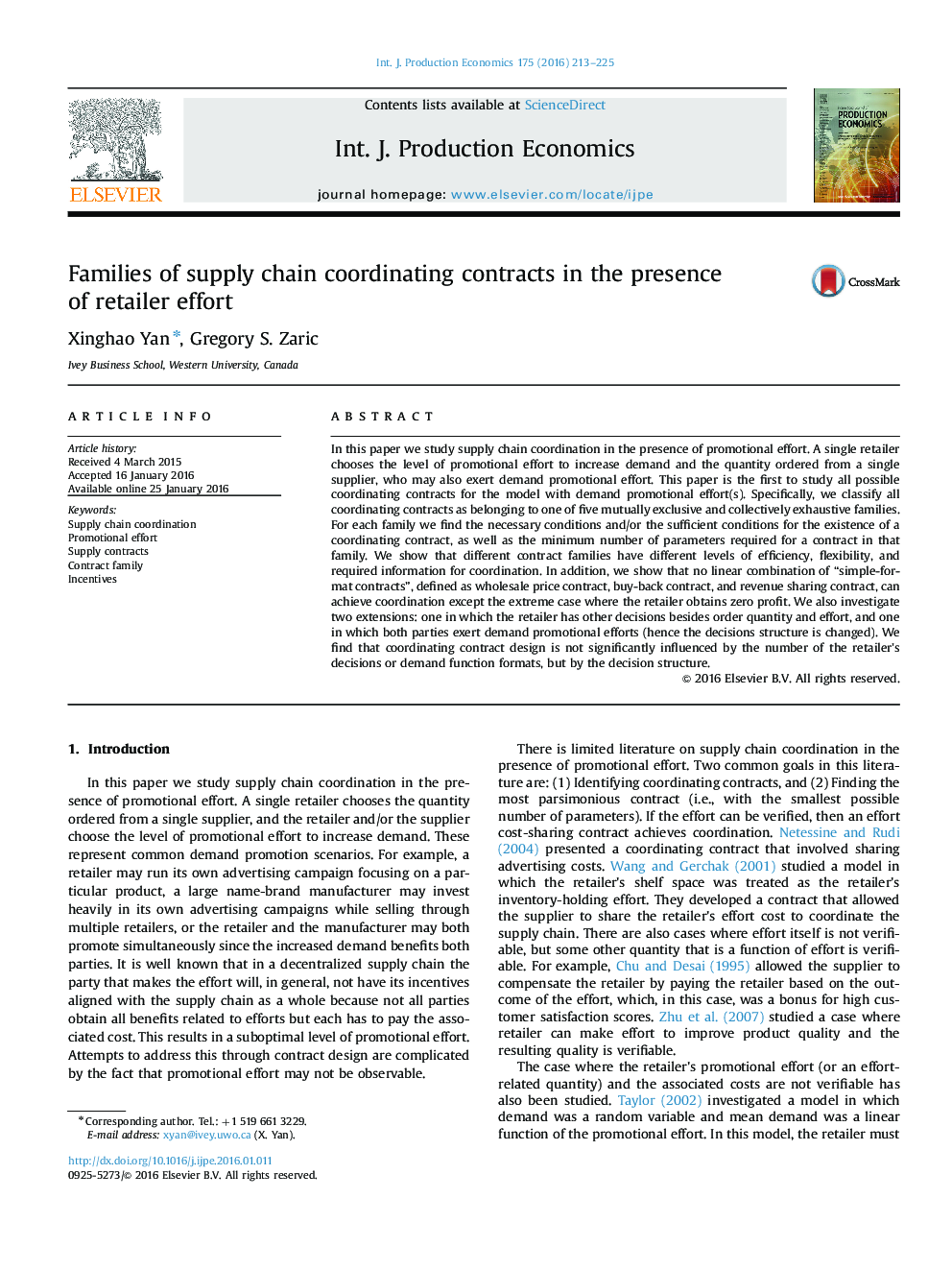| کد مقاله | کد نشریه | سال انتشار | مقاله انگلیسی | نسخه تمام متن |
|---|---|---|---|---|
| 5079413 | 1477532 | 2016 | 13 صفحه PDF | دانلود رایگان |
- We study a supply chain in the presence of retailer effort.
- We classify all contracts in five families.
- We study the coordinating contracts in each family.
- We show that “simple-format” contracts cannot achieve coordination.
- We study extensions with more decisions and different decision structure.
In this paper we study supply chain coordination in the presence of promotional effort. A single retailer chooses the level of promotional effort to increase demand and the quantity ordered from a single supplier, who may also exert demand promotional effort. This paper is the first to study all possible coordinating contracts for the model with demand promotional effort(s). Specifically, we classify all coordinating contracts as belonging to one of five mutually exclusive and collectively exhaustive families. For each family we find the necessary conditions and/or the sufficient conditions for the existence of a coordinating contract, as well as the minimum number of parameters required for a contract in that family. We show that different contract families have different levels of efficiency, flexibility, and required information for coordination. In addition, we show that no linear combination of “simple-format contracts”, defined as wholesale price contract, buy-back contract, and revenue sharing contract, can achieve coordination except the extreme case where the retailer obtains zero profit. We also investigate two extensions: one in which the retailer has other decisions besides order quantity and effort, and one in which both parties exert demand promotional efforts (hence the decisions structure is changed). We find that coordinating contract design is not significantly influenced by the number of the retailer׳s decisions or demand function formats, but by the decision structure.
Journal: International Journal of Production Economics - Volume 175, May 2016, Pages 213-225
